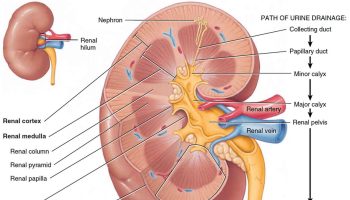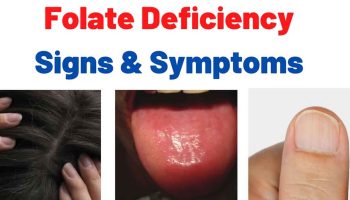Contents
What is schizotypal personality disorder
Schizotypal personality disorder is a mental condition in which a person has trouble with relationships and disturbances in thought patterns, appearance, and behavior. People with schizotypal personality disorder are often described as odd or eccentric and usually have few, if any, close relationships. They generally don’t understand how relationships form or the impact of their behavior on others. They may also misinterpret others’ motivations and behaviors and develop significant distrust of others. These problems may lead to severe anxiety and a tendency to turn inward in social situations, as the person with schizotypal personality disorder responds inappropriately to social cues and holds peculiar beliefs.
Schizotypal personality disorder should not be confused with schizophrenia. People with schizotypal personality disorder can have odd beliefs and behaviors, but unlike people with schizophrenia, they are not disconnected from reality and usually DO NOT hallucinate. They also DO NOT have delusions.
People with schizotypal personality disorder may be very disturbed. They may also have unusual preoccupations and fears, such as fear of being monitored by government agencies.
More commonly, people with this disorder behave oddly and have unusual beliefs (such as aliens). They cling to these beliefs so strongly that they have difficulty forming and keeping close relationships.
People with schizotypal personality disorder may also have depression. A second personality disorder, such as paranoid personality disorder, is also common.
Common signs of schizotypal personality disorder include:
- Discomfort in social situations
- Inappropriate displays of feelings
- No close friends
- Odd behavior or appearance
- Odd beliefs, fantasies, or preoccupations
- Odd speech
Schizotypal personality disorder typically is diagnosed in early adulthood and is likely to endure, though treatment, such as medications and therapy, can improve symptoms.
The lifetime prevalence of schizotypal personality disorder in the United States has recently been estimated to be just under 4%, with slightly higher rates among men (4.2%) than women (3.7%) 1. Likelihood of schizotypal personality disorder was greater among black woman, those with a low income, and people who were separated, divorced, or widowed; and, odds of schizotypal personality disorder were lower in Asian men. After adjusting for sociodemographic parameters and comorbidities, schizotypal personality disorder remained significantly associated with bipolar I and II disorders, PTSD (Post-Traumatic Stress Disorder), borderline personality disorder and narcissistic personality disorder. Additionally, even after adjusting for sociodemographic parameters and comorbidities, patients with schizotypal personality disorder had significantly greater disability than those without schizotypal personality disorder 2.
Among a large, Norwegian cohort of treatment-seeking personality disordered patients, 1.37% of patients met criteria for schizotypal personality disorder, and 21% reported at least 2 schizotypal personality disorder symptoms. One-third of schizotypal personality disorder patients were not comorbid with any other personality disorder, one-third had only one additional comorbid personality disorder, and one-third of schizotypal personality disorder patients were diagnosed with two or more additional personality disorders. In addition to Paranoid Personality Disorder, antisocial personality disorder (Aschizotypal personality disorder) also occurred with greater frequency among patients with schizotypal personality disorder compared to the total sample of personality disordered patients. Although Cognitive-Perceptual criteria of schizotypal personality disorder were strongly associated with a diagnosis of borderline personality disorder, borderline personality disorder occurred with no greater frequency among patients with schizotypal personality disorder than the total sample of personality disordered patients. schizotypal personality disorder exhibited a stronger association with obsessive-compulsive disorder (obsessive-compulsive disorder) than other personality disorders 3.
While it is clear that schizotypal personality disorder is a clinically and functionally disabling condition, the basis of functional impairment and its relation to other phenomenologically similar personality disorders has not been fully elucidated. In terms of ‘real world’ functioning, patients with schizotypal personality disorder have been shown to be less likely to live independently or have obtained a Bachelor’s degree than patients with avoidant personality disorder and healthy control participants. Both patients with schizotypal personality disorder and avoidant personality disorder earned a lower hourly wage compared to healthy control participants, however. Using an interview-based assessment of functional capacity (UCSD Performance-Based Skills Assessment or UPSA), schizotypal personality disorder patients demonstrated lower functional capacity than patients with avoidant personality disorder and healthy control participants. Similar to the role of cognitive dysfunction (working memory, processing speed, executive function) as a major determinant of functional outcomes in schizophrenia, functional capacity in patients with schizotypal personality disorder was shown to be significantly correlated to a composite measure of cognitive function. Similar to previous reports, cognitive function among schizotypal personality disorder patients was shown to be poorer than among healthy control participants and patients with avoidant personality disorder 4.
Similar results have been found when examining patients with schizotypal personality disorder, paranoid personality disorder, schizotypal personality disorder and Paranoid Personality Disorder (schizotypal personality disorder/paranoid personality disorder), compared to participants without either of these diagnoses. A diagnosis of schizotypal personality disorder or paranoid personality disorder was associated with cognitive impairment, and comorbidity of schizotypal personality disorder and Paranoid Personality Disorder was not associated with worse cognitive performance over and above either disorder, alone. While a diagnosis of either schizotypal personality disorder or Paranoid Personality Disorder was associated with less likelihood of employment than patients without either of these diagnoses, these differences were found to be primarily determined by cognitive impairment. Even after adjusting for cognitive function, however, a diagnosis of schizotypal personality disorder was associated with employment at jobs involving less social contact; and a diagnosis of Paranoid Personality Disorder was associated with lower likelihood of having a history of competitive work for more than a year 5.
Schizotypal personality disorder complications
People with schizotypal personality disorder are at an increased risk of:
- Depression
- Anxiety
- Work, school, relationship and social problems
- Other personality disorders
- Problems with alcohol or drugs
- Suicide attempts
- Temporary psychotic episodes, usually in response to stress
- Schizophrenia.
Schizotypal personality disorder vs Schizophrenia
Schizotypal personality disorder can easily be confused with schizophrenia, a severe mental illness in which people lose contact with reality (psychosis). While people with schizotypal personality disorder may experience brief psychotic episodes with delusions or hallucinations, the episodes are not as frequent, prolonged or intense as in schizophrenia.
Another key distinction is that people with schizotypal personality disorder usually can be made aware of the difference between their distorted ideas and reality. Those with schizophrenia generally can’t be swayed away from their delusions. Doctors often describe schizophrenia as a type of psychosis. This means the person with schizophrenia may not always be able to distinguish their own thoughts and ideas from reality.
The two main symptoms of psychosis (schizophrenia) are:
- hallucinations – where a person hears, sees and, in some cases, feels, smells or tastes things that aren’t there; a common hallucination is hearing voices
- delusions – where a person has strong beliefs that aren’t shared by others; a common delusion is someone believing there is a conspiracy to harm them
The combination of hallucinations and delusional thinking can cause severe distress and a change in behavior.
Experiencing the symptoms of psychosis is often referred to as having a psychotic episode.
The symptoms of schizophrenia are usually classified into:
- positive symptoms – any change in behavior or thoughts, such as hallucinations or delusions
- negative symptoms – a withdrawal or lack of function that you would not usually expect to see in a healthy person; for example, people with schizophrenia often appear emotionless and flat
Symptoms of schizophrenia include:
- hallucinations – hearing or seeing things that don’t exist
- delusions – unusual beliefs not based on reality
- muddled thoughts based on hallucinations or delusions
- changes in behavior
- confused and disturbed thoughts
- lack of insight and self-awareness
Hallucinations
Hallucinations are where someone sees, hears, smells, tastes or feels things that don’t exist outside their mind. The most common hallucination is hearing voices.
Hallucinations are very real to the person experiencing them, even though people around them can’t hear the voices or experience the sensations.
Research using brain-scanning equipment shows changes in the speech area in the brains of people with schizophrenia when they hear voices. These studies show the experience of hearing voices as a real one, as if the brain mistakes thoughts for real voices.
Some people describe the voices they hear as friendly and pleasant, but more often they’re rude, critical, abusive or annoying.
The voices might describe activities taking place, discuss the hearer’s thoughts and behavior, give instructions, or talk directly to the person. Voices may come from different places or one place in particular, such as the television.
Delusions
A delusion is a belief held with complete conviction, even though it’s based on a mistaken, strange or unrealistic view. It may affect the way the person behaves. Delusions can begin suddenly, or may develop over weeks or months.
Some people develop a delusional idea to explain a hallucination they’re having. For example, if they have heard voices describing their actions, they may have a delusion that someone is monitoring their actions.
Someone experiencing a paranoid delusion may believe they’re being harassed or persecuted. They may believe they’re being chased, followed, watched, plotted against or poisoned, often by a family member or friend.
Some people who experience delusions find different meanings in everyday events or occurrences.
They may believe people on TV or in newspaper articles are communicating messages to them alone, or that there are hidden messages in the colours of cars passing on the street.
Confused thoughts (thought disorder)
People experiencing psychosis often have trouble keeping track of their thoughts and conversations.
Some people find it hard to concentrate and will drift from one idea to another. They may have trouble reading newspaper articles or watching a TV programme.
People sometimes describe their thoughts as “misty” or “hazy” when this is happening to them. Thoughts and speech may become jumbled or confused, making conversation difficult and hard for other people to understand.
Changes in behavior and thoughts
A person’s behavior may become more disorganized and unpredictable, and their appearance or dress may seem unusual to others.
People with schizophrenia may behave inappropriately or become extremely agitated and shout or swear for no reason.
Some people describe their thoughts as being controlled by someone else, that their thoughts aren’t their own, or that thoughts have been planted in their mind by someone else.
Another recognized feeling is that thoughts are disappearing, as though someone is removing them from their mind.
Some people feel their body is being taken over and someone else is directing their movements and actions.
Negative symptoms of schizophrenia
The negative symptoms of schizophrenia can often appear several years before somebody experiences their first acute schizophrenic episode.
These initial negative symptoms are often referred to as the prodromal period of schizophrenia.
Symptoms during the prodromal period usually appear gradually and slowly get worse.
They include the person becoming more socially withdrawn and increasingly not caring about his or her appearance and personal hygiene.
It can be difficult to tell whether the symptoms are part of the development of schizophrenia or caused by something else.
Negative symptoms experienced by people living with schizophrenia include:
- losing interest and motivation in life and activities, including relationships and sex
- lack of concentration, not wanting to leave the house, and changes in sleeping patterns
- being less likely to initiate conversations and feeling uncomfortable with people, or feeling there’s nothing to say
The negative symptoms of schizophrenia can often lead to relationship problems with friends and family as they can sometimes be mistaken for deliberate laziness or rudeness.
Despite the differences, people with schizotypal personality disorder can benefit from treatments similar to those used for schizophrenia. Schizotypal personality disorder is sometimes considered to be on a spectrum with schizophrenia, with schizotypal personality disorder viewed as less severe.
Schizotypal personality disorder causes
Causes of schizotypal personality disorder are unknown. Genes are thought to be involved because this condition is more common in relatives of schizophrenics.
Personality is the combination of thoughts, emotions and behaviors that makes you unique. It’s the way you view, understand and relate to the outside world, as well as how you see yourself. Personality forms during childhood, shaped through an interaction of inherited tendencies and environmental factors.
In normal development, children learn over time to accurately interpret social cues and respond appropriately. What exactly goes wrong for a person with schizotypal personality disorder isn’t known for certain, but it’s likely that changes in the way the brain functions and genetics may play a role.
Risk factors for schizotypal personality disorder
Your risk of schizotypal personality disorder may be greater if you have a relative who has schizophrenia or another psychotic disorder.
Schizotypal personality disorder symptoms
Schizotypal personality disorder typically includes five or more of these signs and symptoms:
- Being a loner and lacking close friends outside of the immediate family
- Incorrect interpretation of events, such as a feeling that something which is actually harmless or inoffensive has a direct personal meaning
- Peculiar, eccentric or unusual thinking, beliefs or mannerisms
- Dressing in peculiar ways, such as appearing unkempt or wearing oddly matched clothes
- Belief in special powers, such as mental telepathy or superstitions
- Unusual perceptions, such as sensing an absent person’s presence or having illusions
- Persistent and excessive social anxiety
- Peculiar style of speech, such as vague or unusual patterns of speaking, or rambling oddly during conversations
- Suspicious or paranoid thoughts and constant doubts about the loyalty of others
- Flat emotions or limited or inappropriate emotional responses
Signs of schizotypal personality disorder, such as increased interest in solitary activities or a high level of social anxiety, may be seen in the teen years. The child may be an underperformer in school or appear socially out of step with peers, and as a result is often bullied or teased.
Schizotypal personality disorder diagnosis
People with schizotypal personality disorder may seek help from their primary care provider because of other symptoms such as anxiety, depression or angry outbursts or for treatment of substance abuse.
After a physical exam to help rule out other medical conditions, your primary care provider may refer you to a mental health provider for further evaluation.
Diagnosis of schizotypal personality disorder typically is based on:
- Thorough interview about your symptoms
- Your personal and medical history
- Symptoms listed in the Diagnostic and Statistical Manual of Mental Disorders (DSM-5), published by the American Psychiatric Association.
Schizotypal Personality Disorder DSM 5
Schizotypal Personality Disorder DSM 5 Diagnostic Criteria 6:
- A. A pervasive pattern of social and interpersonal deficits marked by acute discomfort with, and reduced capacity for, close relationships as well as by cognitive or perceptual distortions and eccentricities of behavior, beginning by early adulthood and present in a variety of contexts, as indicated by five (or more) of the following:
- 1 . Ideas of reference (excluding delusions of reference) .
- 2. Odd beliefs or magical thinking that influences behavior and is inconsistent with subcultural norms (e.g., superstitiousness, belief in clairvoyance, telepathy, or “sixth sense”; in children and adolescents, bizarre fantasies or preoccupations) .
- 3. Unusual perceptual experiences, including bodily illusions.
- 4. Odd thinking and speech (e. g., vague, circumstantial, metaphorical, overelaborate or stereotyped ) .
- 5. Suspiciousness or paranoid ideation.
- 6. Inappropriate or constricted affect.
- 7. Behavior or appearance that is odd, eccentric, or peculiar.
- 8. Lack of close friends or confidants other than first-degree relatives.
- 9. Excessive social anxiety that does not diminish with familiarity and tends to be associated with paranoid fears rather than negative judgments about self.
- B. Does not occur exclusively during the cou rse of schizophrenia, a bipolar disorder or depressive disorder with psychotic features, another psychotic disorder, or autism spectrum disorder.
Note: If criteria are met prior to the onset of schizophrenia, add “premorbid,” e.g., “schizotypal personality disorder (premorbid).”
The essential feature of schizotypal personality disorder is a pervasive pattern of social and interpersonal deficits marked by acute discomfort with, and reduced capacity for, close relationships as well as by cognitive or perceptual distortions and eccentricities of behavior. This pattern begins by early adulthood and is present in a variety of contexts.
Individuals with schizotypal personality disorder often have ideas of reference (i.e., incorrect interpretations of casual incidents and external events as having a particular and unusual meaning specifically for the person) (Criterion A l ). These should be distinguished from delusions of reference, in which the beliefs are held with delusional conviction.
These individuals may be superstitious or preoccupied with paranormal phenomena that are outside the norms of their subculture (Criterion A2) . They may feel that they have special powers to sense events before they happen or to read others’ thoughts. They may believe that they have magical control over others, which can be implemented directly (e.g., believing that their spouse’s taking the dog out for a walk is the direct result of thinking an hour earlier it should be done) or indirectly through compliance with magical rituals (e.g., walking past a specific object three times to avoid a certain harmful outcome). Perceptual alterations may be present (e.g., sensing that another person is present or hearing a voice murmuring his or her name) (Criterion A3). Their speech may include unusual or idiosyncratic phrasing and construction. It is often loose, digressive, or vague, but without actual derailment or incoherence (Criterion A4). Responses can be either overly concrete or overly abstract, and words or concepts are sometimes applied in unusual ways (e.g., the individual may state that he or she was not “talkable” at work).
Individuals with this disorder are often suspicious and may have paranoid ideation (e.g., believing their colleagues at work are intent on undermining their reputation with the boss) (Criterion A 5). They are usually not able to negotiate the full range of affects and interpersonal cuing required for successful relationships and thus often appear to interact with others in an inappropriate, stiff, or constricted fashion (Criterion A6). These individuals are often considered to be odd or eccentric because of unusual mannerisms, an often unkempt manner of dress that does not quite “fit together,” and inattention to the usual social conventions (e.g., the individual may avoid eye contact, wear clothes that are ink stained and ill-fitting, and be unable to join in the give-and-take banter of co-workers) (Criterion A7).
Individuals with schizotypal personality disorder experience interpersonal relatedness as problematic and are uncomfortable relating to other people. Although they may express unhappiness about their lack of relationships, their behavior suggests a decreased desire for intimate contacts. As a result, they usually have no or few close friends or confidants other than a first-degree relative (Criterion A8) . They are anxious in social situations, particularly those involving unfamiliar people (Criterion A9). They will interact with other individuals when they have to but prefer to keep to themselves because they feel that they are different and just do not “fit in. ” Their social anxiety does not easily abate, even when they spend more time in the setting or become more familiar with the other people, because their anxiety tends to be associated with suspiciousness regarding others’ motivations. For example, when attending a dinner party, the individual with schizotypal personality disorder will not become more relaxed as time goes on, but rather may become increasingly tense and suspicious.
Schizotypal personality disorder should not be diagnosed if the pattern of behavior occurs exclusively during the course of schizophrenia, a bipolar or depressive disorder with psychotic features, another psychotic disorder, or autism spectrum disorder (Criterion B).
Schizotypal personality disorder treatment
Treatment for schizotypal personality disorder often includes a combination of medication and one or more types of psychotherapy. Many people can be helped by work and social activities that are a fit for their personality style.
Psychotherapy
Psychotherapy, also called talk therapy, may help people with schizotypal personality disorder begin to trust others by building a trusting relationship with a therapist.
Psychotherapy may include:
- Cognitive-behavioral therapy — identifying and changing distorted thought patterns, learning specific social skills, and modifying problem behaviors
- Supportive therapy — offering encouragement and fostering adaptive skills
- Family therapy — involving family members, which may help reduce fighting or emotional distance and improve trust in the home
Medications
There are no medications approved by the Food and Drug Administration specifically for the treatment of schizotypal personality disorder. However, doctors may prescribe an antipsychotic, a mood stabilizer, an antidepressant or an anti-anxiety drug to help relieve certain symptoms, such as psychotic episodes, depression or anxiety. Some medications may help reduce distorted thinking.
Coping and support
Symptoms of conditions such as schizotypal personality disorder may improve over time through experiences that help foster — among other positive traits — self-confidence, a belief in one’s ability to overcome difficulty and a sense of social support.
Factors that appear most likely to reduce the symptoms of this disorder include:
- Positive relationships with friends and family
- A sense of achievement at school, work and in extracurricular activities
- Rosell DR, Futterman SE, McMaster A, Siever LJ. Schizotypal Personality Disorder: A Current Review. Current psychiatry reports. 2014;16(7):452. doi:10.1007/s11920-014-0452-1. https://www.ncbi.nlm.nih.gov/pmc/articles/PMC4182925/[↩]
- Pulay AJ, Stinson FS, Dawson DA, et al. Prevalence, correlates, disability, and comorbidity of DSM-IV schizotypal personality disorder: results from the wave 2 national epidemiologic survey on alcohol and related conditions. Prim Care Companion J Clin Psychiatry. 2009;11:53–67. https://www.ncbi.nlm.nih.gov/pmc/articles/PMC2707116/[↩]
- Hummelen B, Pedersen G, Karterud S. Some suggestions for the DSM-5 schizotypal personality disorder construct. Compr Psychiatry. 2012;53:341–349. This study comprehensively examines the factor structure and psychometric properties of SPD criteria among a large clinical population of personality disordered patients assessed by structured interview. https://www.ncbi.nlm.nih.gov/pubmed/21741634[↩]
- McClure MM, Harvey PD, Bowie CR, Iacoviello B, Siever LJ. Functional outcomes, functional capacity, and cognitive impairment in schizotypal personality disorder. Schizophr Res. 2013;144:146–150. This studies establishes the importance of working memory/cognitive dysfunction in determining functional outcomes in SPD. https://www.ncbi.nlm.nih.gov/pmc/articles/PMC4182925/[↩]
- McGurk SR, Mueser KT, Mischel R, et al. Vocational functioning in schizotypal and paranoid personality disorders. Psychiatry Res. 2013;210:498–504. This study assesses the role of cognitive impairent and other factors in the vocational function of both SPD and PPD patients. https://www.ncbi.nlm.nih.gov/pubmed/23932840[↩]
- American Psychiatric Association . Diagnostic and statistical manual of mental disorders. 5. Washington, DC: American Psychiatric Association; 2013.[↩]





